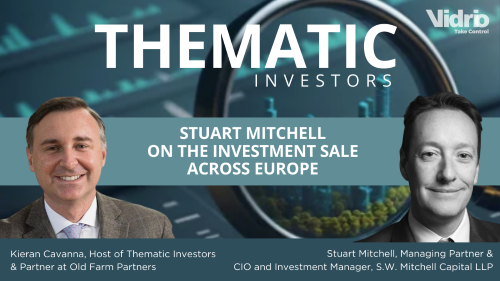In the fast-paced world of institutional investing, where performance and risk management are top priorities, it's no wonder that industry experts seek inspiration and wisdom from other sources. So, where do these experts turn to find new ideas that can enhance their strategic allocations? In our latest blog post on Vidrio, we bring you a curated list of top reads recommended by guests of the popular Improving Alpha podcast.
By: David Barry, Director of Marketing, Vidrio Financial
Improving Alpha: Innovation in Investing, ESG and Technology podcast, a partnership between Vidrio Financial and Michael Oliver Weinberg, had a very active year, with a deep bench of institutional investing thought leaders and critical market insights.
We won’t give away any secrets on future trends in institutional investing, or the best ways of searching for alpha opportunities, (you can listen for those here), instead what we would like to present is a quick rundown of some of the books that Improving Alpha podcast guests spent reading, to stay at the top of their respective games.
We hope you enjoy this countdown and look forward to reading through some of these recommendations from the Improving Alpha podcast in the future.
Paul C. Sohn, Chief Investment Officer, Mont Alto Capital:
In Paul’s world, managing risk and time is crucial for investing. Through his podcast discussion we learned that as with any good risk management strategy you learn to cut losses quickly.
That same principle applies to Paul’s reading choices today. If the book becomes a fight to work through, he simply moves on, rather than battling some internal competition that states that the latest book needs to be fully consumed.
Instead, the page turners that kept his interest were in the world of biographies beginning with:
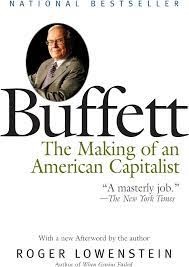
Roger Lowenstein’s book on Warren Buffet entitled: Buffett: The Making of an American Capitalist which highlights Buffett’s investment style, his net worth over $10 billion, and how he’s become a brilliant dealmaker throughout his career was a top choice for Paul’s reading list. And their shared view on the importance of long-term investing and compounding over time, rather than ‘day-trading.’
Walter Isaacson’s book on Steve Jobs highlights this entrepreneur’s career across personal computers, animated movies music, phones, tablet computing, and digital publishing.
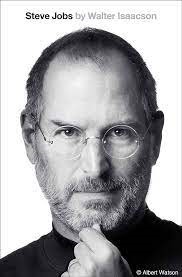
Maverick: A Biography of Thomas Sowell, by Jason L. Riley, billed as one of the great social theorists of the age, covers economic history, social inequality, political theory and more. All themes that are resonating in institutional investing today.
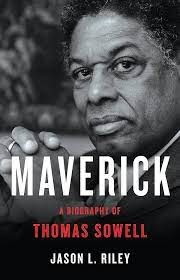
As part of this podcast episode, our host added that Ron Chernow’s takes on John D. Rockefeller, Titan: The Life of John D. Rockefeller, was amazing as well, highlighting a rise of an unassuming man into one of the most controversial and successful business people in American history.
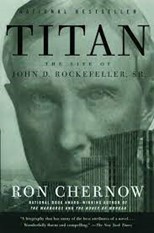
Christopher J. Ailman, Chief Investment Officer, CalSTRS:
For great wisdom and advice Christopher picks up the bible in addition to some various leadership books. One leadership book that he specifically pointed out when discussing CalSTRS and his own market approach was Lincoln on Leadership, by Donald T. Phillips.
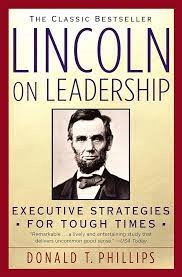
From Christopher’s standpoint this is a book that can be read repeatedly and can be compared to some of the leaders that you may experience in your own travels as you move through life. In the case of Lincoln on Leadership, many universities are beginning to offer it as a classroom experience as well.
Scott Pittman, SVP and Chief Investment Officer, Mount Sinai Medical Center:
From artificial intelligence to digital assets, technology cycles are constantly innovating to capture new efficiencies to grow earnings and further diversify portfolios. In examining this trend, Scott was reminded of a book from the early 1990’s that he believes has stood the test of time. Technological Revolutions and Financial Capital: The Dynamics of Bubbles and Golden Ages by, Carlota Perez, allows you to understand the compounding effects of past technology cycles and how they impact present day allocations along with overall valuations in each sector.
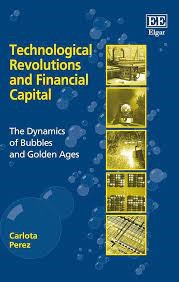
Tobias Read, State Treasurer, Oregon State Treasury:
Different views and opinions are important in the way that Tobias and his team approach various investments for the Oregon State Treasury. In this episode of the Improving Alpha podcast, Tobias pointed out that mistakes are inevitable, but teams should be able to distinguish between bad results and bad processes.
The decision making and the diversity of opinions is crucial in his mind for approaching the larger strategic questions and a volatile market. To that end, he called out The Yellow Pad: Making Better Decisions in an Uncertain World, Robert E. Rubin.
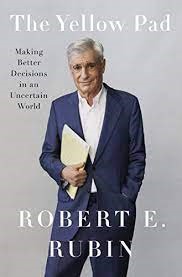
Not related to investing, but one that he loves to pick up is, A River Runs Through It, by Norman Maclean and Barry Moser.
Part of any strategic brainstorming event in the institutional investing space is understanding the decision-making process and the value of multiple opinions to help reach your goals. During the discussion with Tobias, Michael referenced a favorite standout in James Surowiecki, Wisdom of the Crowds. This book does a great job of proving that many informed views typically leads to better decisions than having fewer uninformed views or even one informed view.
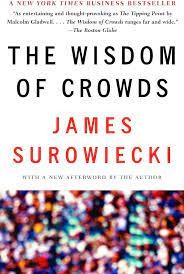
Jose Eduardo Siman, President, Intradeco Inc.:
When people start losing their visibility on humanity it becomes a very slippery slope to larger human tragedies and becoming a distraction to larger business operations and more. Jose said that the one book that really drove this point home for him was Jonathan Glover, Humanity the moral history of the 20th century. This episode was a favorite here at Vidrio as we listened to Jose discuss institutional investment fraud against a back drop of lengthy due diligence discussions, and how Jose looks to allocating more to socially responsible projects.

Jonathan Grabel, Chief Investment Officer, LACERA:
Similar in the approach of our first recommendation from Paul C. Sohn, Jonathan also believes that when a book isn’t working, don’t struggle to reach the finish. Put the book down and start with something better. Our host notes the common theme that he has observed among the world’s best investors, cutting one’s losses. In Jonathan’s case, he tends to favor historical fiction, and biographies, but the one that stood out the most was by Peter Zeihan, The End of the World is Just the Beginning: Mapping the Collapse of Globalization.
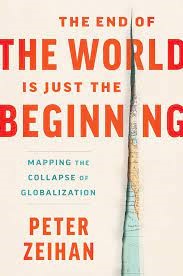
This looks like a very interesting read with the author highlighting a future geoeconomic theatre where supply chains breakdown and countries must become self-reliant in terms of goods, food sources, energy, and more.
One final recommendation from our Improving Alpha podcast host, was from author Adam Fergusson, When Money Dies: the Nightmare of Deficit Spending, Devaluation, and Hyperinflation in Weimar Germany. This book details 1923 Germany and how the republic’s hyperinflation devalued the currency, ultimately lead to financial collapse and was integral in what subsequently transpired in Germany. How is this relevant to today? Record developed (and developing) world deficits, debt, high(er) inflation, reckless monetary policy are all reminiscent of the lessons taught in this book.
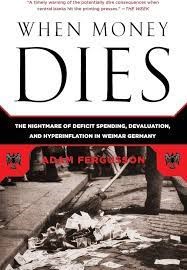
Be on the lookout for other Improving Alpha podcast top reads in the coming months as we invite more guests to share their thoughts on how they enhance their own knowledge and potentially escape into other worlds.
*Note all book cover images were found via Amazon and can be purchased on the Amazon website.




